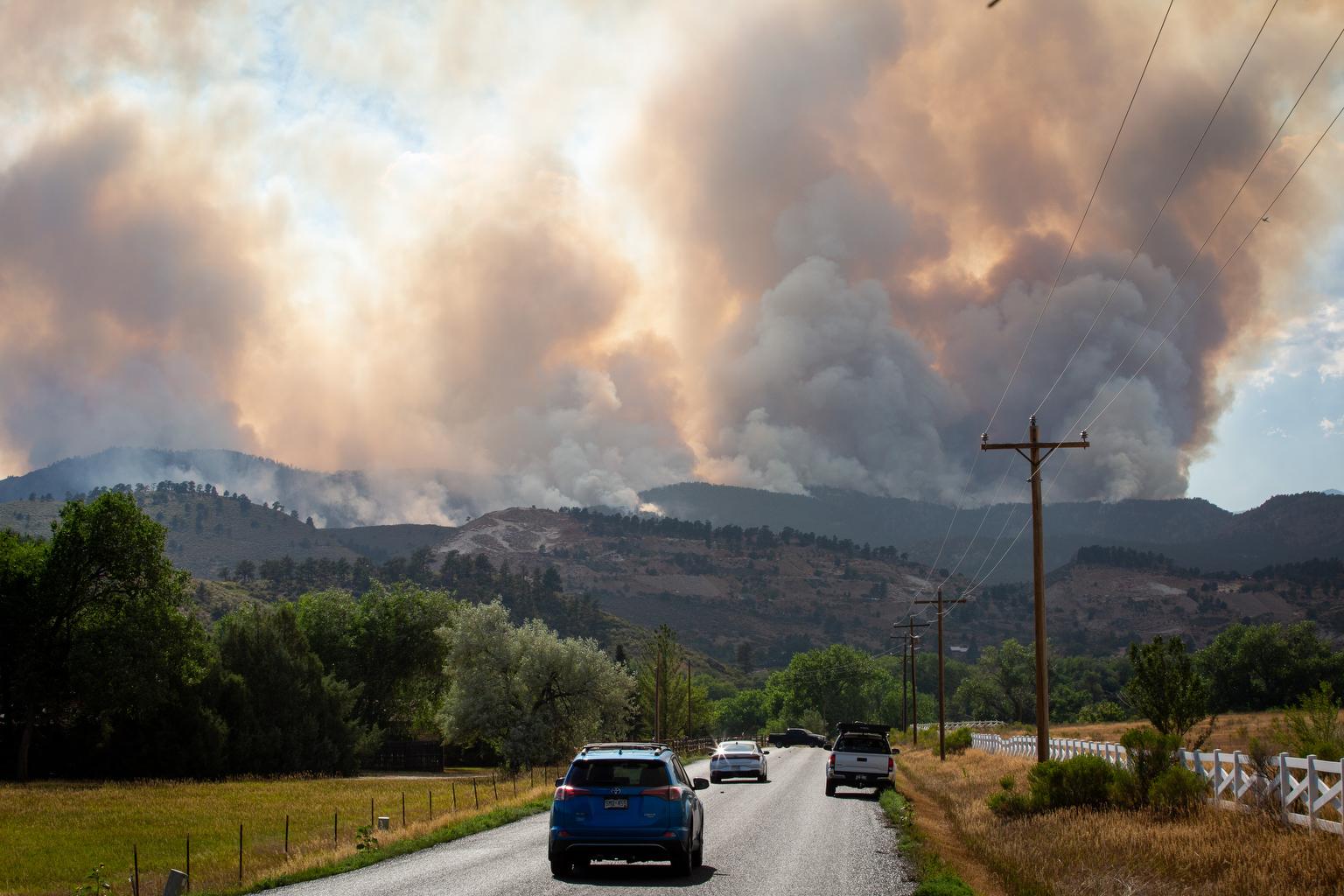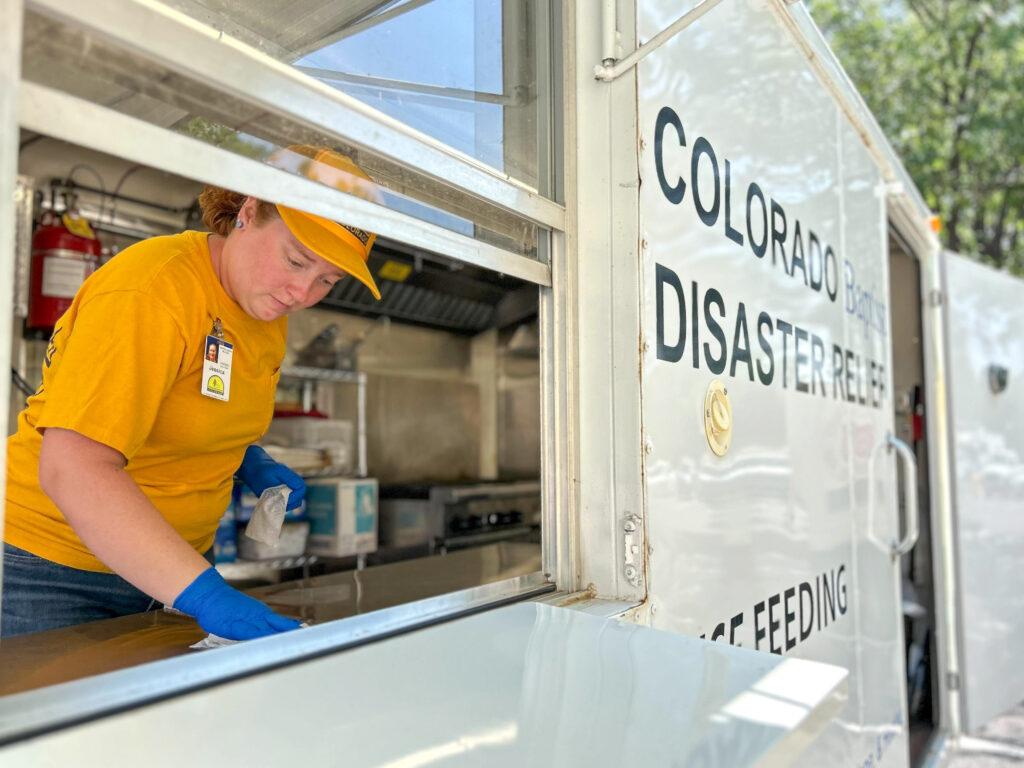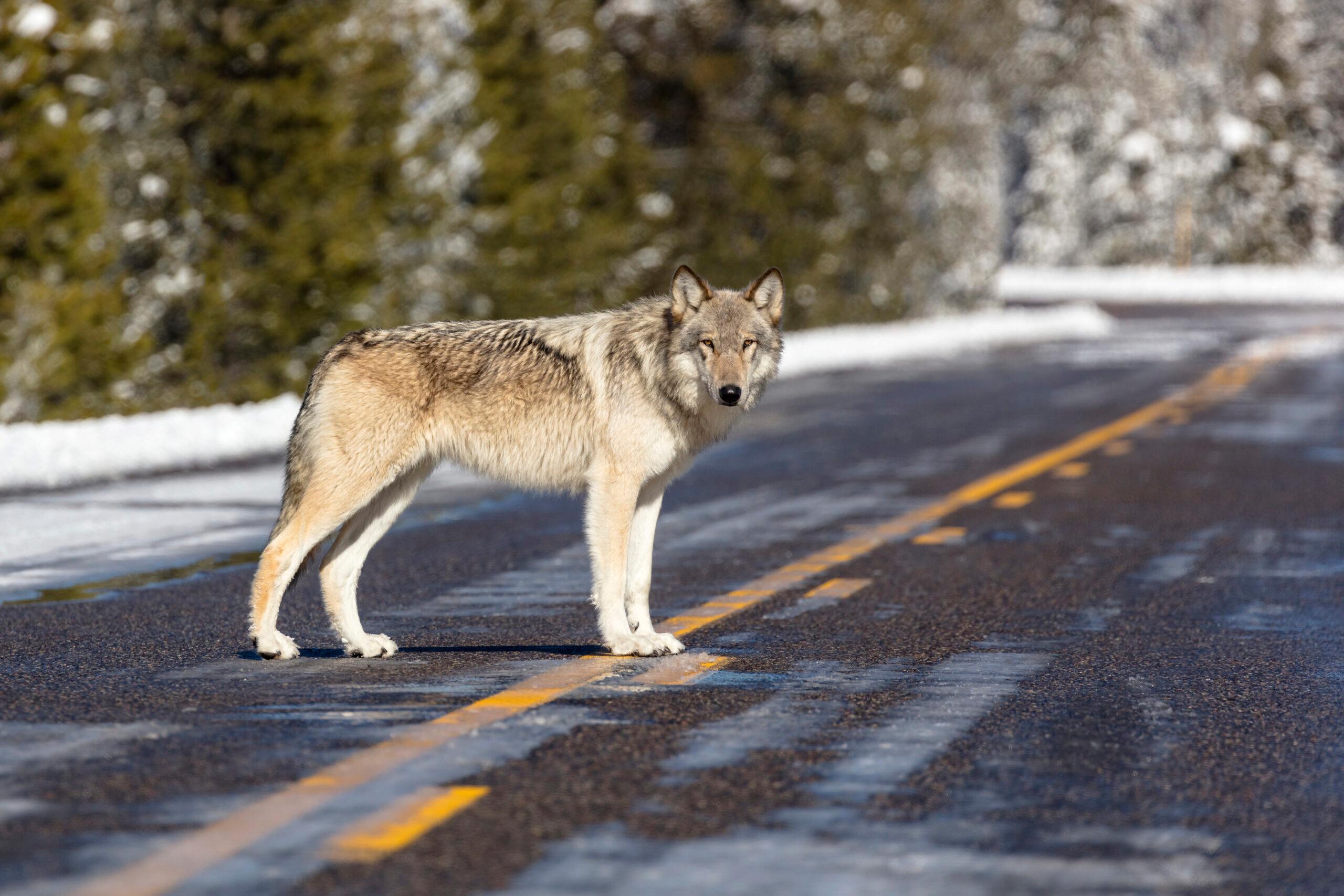
This article is no longer being updated. Click here for the latest news on the state wildfires.
Updated at 3:29 p.m. on Aug. 1, 2024
Fire crews are still working to contain the Alexander Mountain fire, which ignited Monday and has grown to cover more than 12 square miles west of Loveland. The U.S. Forest Service said Thursday that the fire was about 1 percent contained.
- The Alexander Mountain fire is the largest currently burning in Colorado. No injuries have been reported, but the Larimer County Sheriff’s Office said two dozen homes and outbuildings have been damaged or destroyed.
- Investigators are probing the cause of the fire, which was reported through a 911 call Monday morning.
- Evacuation orders are in place for a region west of Loveland that extends from Indian Mountain north to the Dunraven Trailhead and east to Velvet Ridge Ranch. Residents near the western and eastern edge of the evacuation area have been warned to be prepared to leave if the fire worsens.
- More than 250 are working to control the fire Thursday, which is now being overseen by the Southwest Area Incident Management Team, a national firefighting team that specializes in complex wildfires.
- Teams have called in repeated air drops of water and fire retardant, but the U.S. Forest Service said thick smoke on Wednesday prevented pilots from making as many drops as they wanted.
Evacuation information
- Evacuation Centers have been set up at Foundations Church at 1380 N. Denver Ave. in Loveland and at the Estes Park Events Complex at 1125 Rooftop Way in Estes Park.
- Residents can evacuate large animals to Island Grove Regional Park at 501 N. 14th Ave. in Greeley.
On Thursday, fire crews were focusing on protecting about a hundred homes near the community of Masonville on the east side of the fire and keeping the fire away from the Cedar Park and Storm Mountain area in the west and northwest, said Jason Coil, an operations section chief for the Southwest Area Incident Management Team.
Coil said the growth of the Alexander Mountain fire will likely be capped to the north due to the 326 square-mile burn scar left by the 2020 Cameron Peak fire — Colorado’s largest — which eliminated a lot of vegetation that could fuel new wildfires in the area.
Firefighters are also focusing on protecting the U.S. Route 34 corridor, including an important fiber optic line, Coil said. That area is “a lot more heavily timbered,” which could become harder to manage if it catches fire.
Teams were able to move into the area Thursday to assess damage from the fire. At least two dozen homes and outbuildings were damaged or destroyed, according to the Larimer County Sheriff’s Office.
The National Weather Service expects warm, dry conditions to continue Thursday, with elevated wildfire conditions in many areas. Skies across the northern Front Range will likely be hazy due to wildfire smoke, which has prompted state health officials have issued an air quality alert for the region.
Evacuating through a cloud of smoke
Ruth and Steve Zulauf haven’t returned to their home near Devil’s Backbone since they evacuated through a cloud of smoke on Tuesday.
The couple brought their cats to a Northern Colorado Humane Society location near Fort Collins and are staying with Yoda, their dog in a Loveland hotel.
They're worried about their home, their neighbors and their church in Masonville. The couple has lived near Alexander Mountain since 1977.

Ever since their children left the home, Ruth Zulauf said her friends have asked when the couple was going to move, too.
She said she always joked that she’d never move and tell them, “I’m just going to burn everything down.”
“Well, I got it,” she laughed. “Better be careful what I ask for!”
This is a developing story and will be updated.









